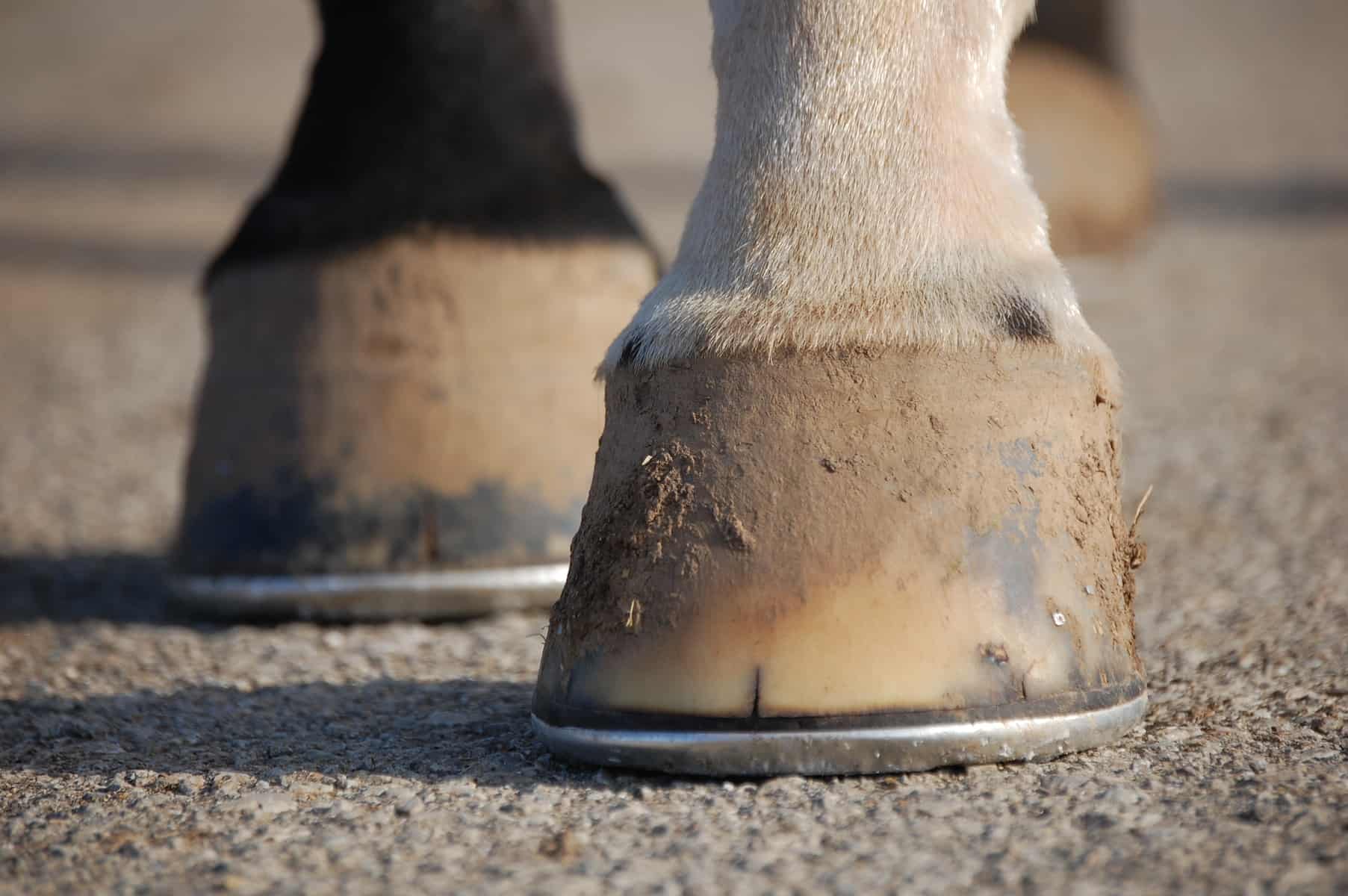Nutritional Support for Horse Hooves

Mary Beth Gordon, PhD, director of equine research and new product development at Purina Animal Nutrition, weighed in on factors that influence hoof health: “Genetics is most important, followed by nutrition, then exercise and season. Farriery practices are also significant. Because some horses are genetically endowed with phenomenal hoof strength, even with a less-than-adequate diet their hooves remain strong. However, a severely restricted or poorly balanced diet could adversely affect genetically superior hooves, just as such imbalances negatively impact overall health.”
Gordon pointed out that sedentary horses tolerate nutrient deficiencies or imbalances better than active, performance, or breeding animals.
“All horses in all life stages are susceptible to deficiencies and subsequent deleterious effects,” said Gordon, noting that early and late life stages are particularly important times to monitor your horse’s diet. For example, “The aging digestive system of a senior horse may be less efficient at absorption or production of nutrients in the hindgut, such as B vitamins,” she noted. “Supplementation with (this and other) constituents that target the hoof may benefit senior horses
Create a free account with TheHorse.com to view this content.
TheHorse.com is home to thousands of free articles about horse health care. In order to access some of our exclusive free content, you must be signed into TheHorse.com.
Start your free account today!
Already have an account?
and continue reading.

Written by:
Nancy S. Loving, DVM
Related Articles
Stay on top of the most recent Horse Health news with



















